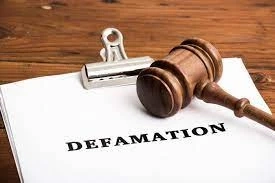Defamation is a legal concept that involves making false statements about someone that harm their reputation. These false statements can be spoken (slander) or written (libel) and must be published or communicated to a third party. To prove defamation in a court of law, four essential factors must typically be present. These elements vary slightly depending on the jurisdiction, but in general, they are as follows:
1. **False Statement:** The first crucial factor of defamation is that the statement in question must be false. Truth is an absolute defense against defamation claims. If the statement is accurate, no matter how damaging it may be to the individual's reputation, it cannot be considered defamatory. It is the responsibility of the plaintiff (the person claiming defamation) to demonstrate that the statement is false and not based on verifiable facts.
2. **Publication:** The second factor of defamation is that the false statement must be communicated to a third party. In other words, it must be published or conveyed to someone other than the person who is the subject of the statement. This element is essential because harm to the individual's reputation arises from the dissemination of the false information to others.
3. **Harm to Reputation:** The third factor is that the false statement must have caused harm to the individual's reputation. The harm can be in various forms, including damage to their personal or professional reputation, loss of business opportunities, ridicule, or social isolation. Proving the extent of the harm may require the plaintiff to demonstrate concrete evidence of specific damages resulting from the defamatory statement.
4. **Negligence or Actual Malice:** This fourth factor may not be required in every jurisdiction, but it often differentiates between types of defamation cases. In general, there are two forms of defamation: defamation per se and defamation per quod. In defamation per se cases, the statement is considered inherently harmful, and the plaintiff doesn't need to prove damages. Examples include false allegations of serious crimes, sexual misconduct, or professional incompetence. However, in defamation per quod cases, the plaintiff must prove specific damages. In some instances, to recover damages, the plaintiff must show that the defendant acted negligently in making the false statement or, in some cases, with actual malice. Actual malice means that the defendant either knew the statement was false or acted with reckless disregard for its truth or falsity.
It's important to note that public figures, such as celebrities or politicians, face a higher threshold in proving defamation. In these cases, they must often demonstrate that the false statement was made with actual malice—meaning the person making the statement knew it was false or acted with reckless disregard for its truth—rather than mere negligence.
Defamation cases can be complex and challenging to prove. As the laws surrounding defamation can differ significantly from one jurisdiction to another, it is essential to seek legal advice from qualified professionals if you believe you have a potential defamation claim or if you are accused of making defamatory statements. Additionally, the advent of social media and the internet has added new dimensions to defamation cases, making them even more intricate and requiring careful consideration of jurisdiction and applicable laws.


